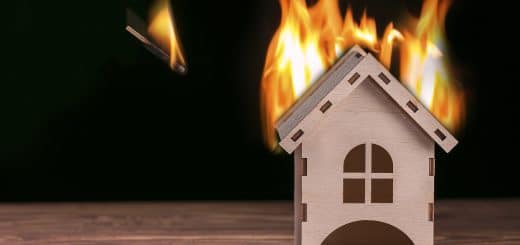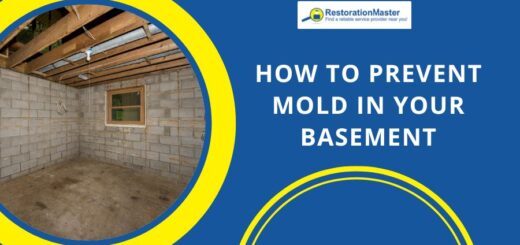Why Does My Bathroom Sink Smell When I Run the Water?
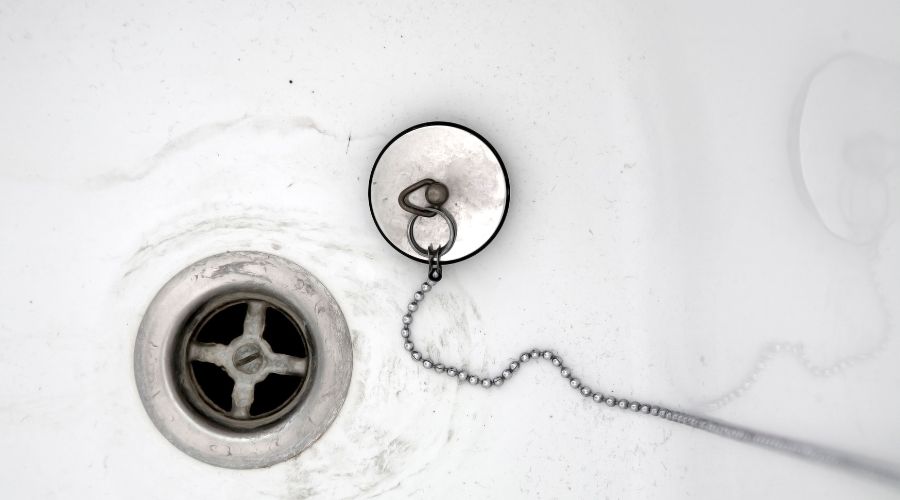
If you’re encountering a persistent bad odorAn odor is a smell, often detectable by the human nose, whic... More in your bathroom and can’t pinpoint the source, it’s wise to inspect your drain. Various factors can contribute to unpleasant smells coming from your sink. In this article, we’ll delve into some of the common causes and provide effective solutions to address them, preventing potential damage. Moreover, it’s crucial to implement preventive measures against bathroom sink odors. We’ll share some straightforward strategies to keep your bathroom smelling fresh. However, if after following our recommendations, the problem persists, don’t hesitate to contact a water damage restoration professional for assistance.
Why is There a Smell When I Use the Bathroom Sink?
If there are odors coming from your bathroom sink, it is likely due to one of these causes:
Dry P-Trap
A P-trap, named for its U-shape and located beneath your sink, plays a crucial role in preventing sewageSewage is wastewater containing biological and chemical cont... More odors from entering your home. Often referred to as a U-bend, this device traps a small amount of water, creating a seal against sewer gases. However, when the P-trap dries out due to clogs, hot weather evaporationEvaporation is the process by which a liquid, such as water,... More, or infrequent use, it may allow unpleasant smells to seep into your bathroom.
To remedy a dry P-trap, the simplest solutionA solution is a homogeneous mixture of two or more substance... More is to flush your pipes with water, restoring the essential moisture barrier. If this approach fails, it’s advisable to seek the expertise of a professional drain cleaner. A malfunctioning P-trap not only leads to disagreeable odors but prolonged exposure to sewageSewage is wastewater containing biological and chemical cont... More gases can also result in health issues, including headaches and dizziness.
Buildup of Soap and Hair
A variety of substances, including toothpaste, hand soap, hair, and shaving cream, can accumulate in your drain. While these items may easily wash away, they also tend to adhere to the sides of pipes. Over time, as this buildup grows, it can leadLead is a heavy metal that can be toxic to humans, especiall... More to unpleasant odors emanating from your sink.
The simplest method to clean this accumulation from your pipes involves using a small plumbing snake or a commercial drain cleaner. It’s crucial to adhere to the instructions provided on the cleaner’s label. Alternatively, you can concoct a homemade cleaning solutionA solution is a homogeneous mixture of two or more substance... More by combining baking soda with distilled white vinegar. This mixture will trigger a reaction that helps dislodge soap scum and other residues from the pipes.
Mold and Mildew
MoldMold is a type of fungus that grows in damp or humid conditi... More and mildewMildew is a type of fungus that grows on damp surfaces, typi... More thrive in damp, dark environments, making the moist spaces around bathroom sinks an ideal breeding ground. When organic matter like toothpaste residueResidue is any leftover material, such as soot, dust, or che... More or hair accumulates in these areas, it provides a food source for moldMold is a type of fungus that grows in damp or humid conditi... More and mildewMildew is a type of fungus that grows on damp surfaces, typi... More to grow, leading to unpleasant odors. If the moldMold is a type of fungus that grows in damp or humid conditi... More problem is minor, you can attempt home remedies for removal and cleaning. However, for larger moldMold is a type of fungus that grows in damp or humid conditi... More infestations, it’s best to seek assistance from a professional.
Clog in the Sewer Line
When soap scum and hair accumulate in your pipes and descend deeper, they can form a blockage unreachable by manual snaking or baking soda. Such buildups often emit an odorAn odor is a smell, often detectable by the human nose, whic... More, but they can also leadLead is a heavy metal that can be toxic to humans, especiall... More to a gas leak from the P-trap, contributing to an unpleasant smell. The most effective remedy for such sewer line clogs is to enlist the services of a drain cleaning expert. Equipped with the right tools, they can address your sewer line issues efficiently without causing harm to your plumbing.
An Issue with Your Vent
Typically, your home’s plumbing system is equipped with vents designed to prevent unpleasant sewer odors from being trapped inside. If you detect the smell of sewer gas emanating from your drain, it could indicate a blockage in your ventilationVentilation is the process of exchanging or circulating air ... More system. To address this problem effectively, it’s advisable to enlist the services of a skilled plumber who has the necessary knowledge and expertise. This proactive approach can help you avoid more expensive repairs in the future.
How to Prevent Bad Odor in Your Sink?
We’ve gone over the most common reasons for bad odors in your bathroom sink and some options for solutions. There are also preventative strategies you can use to keep your bathroom sink free of odors. Here are a few:
Keep your sink clean by removing biofilm buildup:
To detect biofilm accumulation, remove your stopper and inspect it for any black residueResidue is any leftover material, such as soot, dust, or che... More at the base. If you notice a buildup, it’s crucial to thoroughly clean your sink, including a deep cleanse of the drain and pipes. Use a commercial sink cleaner, or alternatively, vinegar can be an effective solutionA solution is a homogeneous mixture of two or more substance... More. In cases of significant bacterial buildup, you might need to shut off the water supply, disassemble the plumbing, and meticulously clean each pipe. Use a paper towel for the interior of each pipe, rinse thoroughly with an outdoor faucet or hose, and then reassemble the plumbing system.
Check the overflow pipe:
The overflow pipe, prone to accumulating soap scum and debris, can become a source of unpleasant odors over time. To address this, you can effectively clean the area using vinegar or household bleach. Employing a small toothbrush or a similar brush, meticulously scrub the inner rim of the overflow hole to ensure it remains fresh and clean.
Clean the basin of the sink:
If your bathroom is plagued by an unpleasant odorAn odor is a smell, often detectable by the human nose, whic... More, it’s likely due to buildup in the sink basin. Effortlessly revive your sink by sealing the drain, introducing soap, and filling the basin with hot water. Allow this solutionA solution is a homogeneous mixture of two or more substance... More to sit for a few minutes before releasing the water and thoroughly scrubbing the basin. This method is effective in removing foul odors.
Wipe down the sink on a regular basis:
Use a Clorox wipe to wipe down the sink and the vanity every day, or at least a few days each week. This will help prevent a buildup of dirt and grime and keep odors away.
Use Hot Water To Clear the Pipes:
The age-old practice of using hot boiling water to clean sink pipes has been trusted for years to combat odors. While it can help dislodge debris and bacteria, it may not solve deeper issues like clogs or moldMold is a type of fungus that grows in damp or humid conditi... More growth.
Could a Smelly Bathroom Sink Indicate a Risk of Pipe Burst?
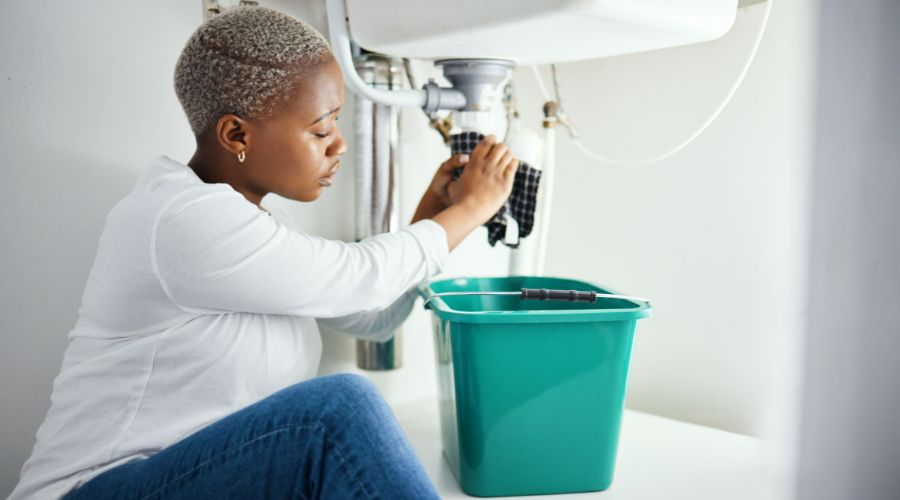
A bad smell coming from your bathroom sink might not mean a pipe burst is about to happen, but it could point to hidden plumbing problems. This smell could be due to things like blockages, gunk buildup, or water standing still in the pipes. If you don’t deal with these issues, they could cause pressure to build up in the pipes over time, potentially leading to damage. While the smell itself won’t directly cause a burst, it’s a warning that something’s wrong with your plumbing and needs fixing.
Call Experts For Water Damage Restoration & Mold Removal
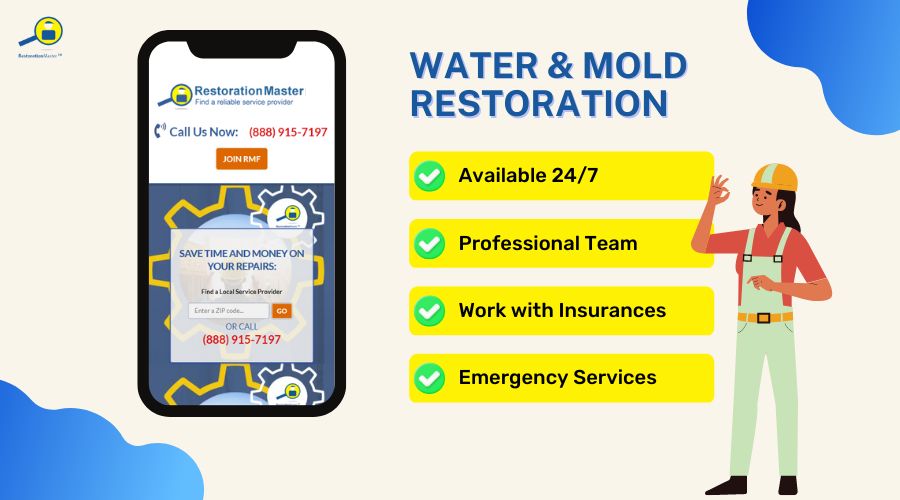
Have you encountered a burst pipe or moldMold is a type of fungus that grows in damp or humid conditi... More and mildewMildew is a type of fungus that grows on damp surfaces, typi... More issues at your home or business? If so, it’s essential to address water damage promptly. Water damage restoration specialists are trained to handle dryingDrying is the process of removing moisture from materials, s... More, cleaning, and restoring your property. Whether you’re dealing with minor leaks or major floodingFlooding is the overflow or accumulation of water in areas t... More, don’t hesitate to contact a professional for help. They also have expertise in removing moldMold is a type of fungus that grows in damp or humid conditi... More from drains and pipes, ensuring thorough restorationRestoration is the process of returning a property to its pr... More.










